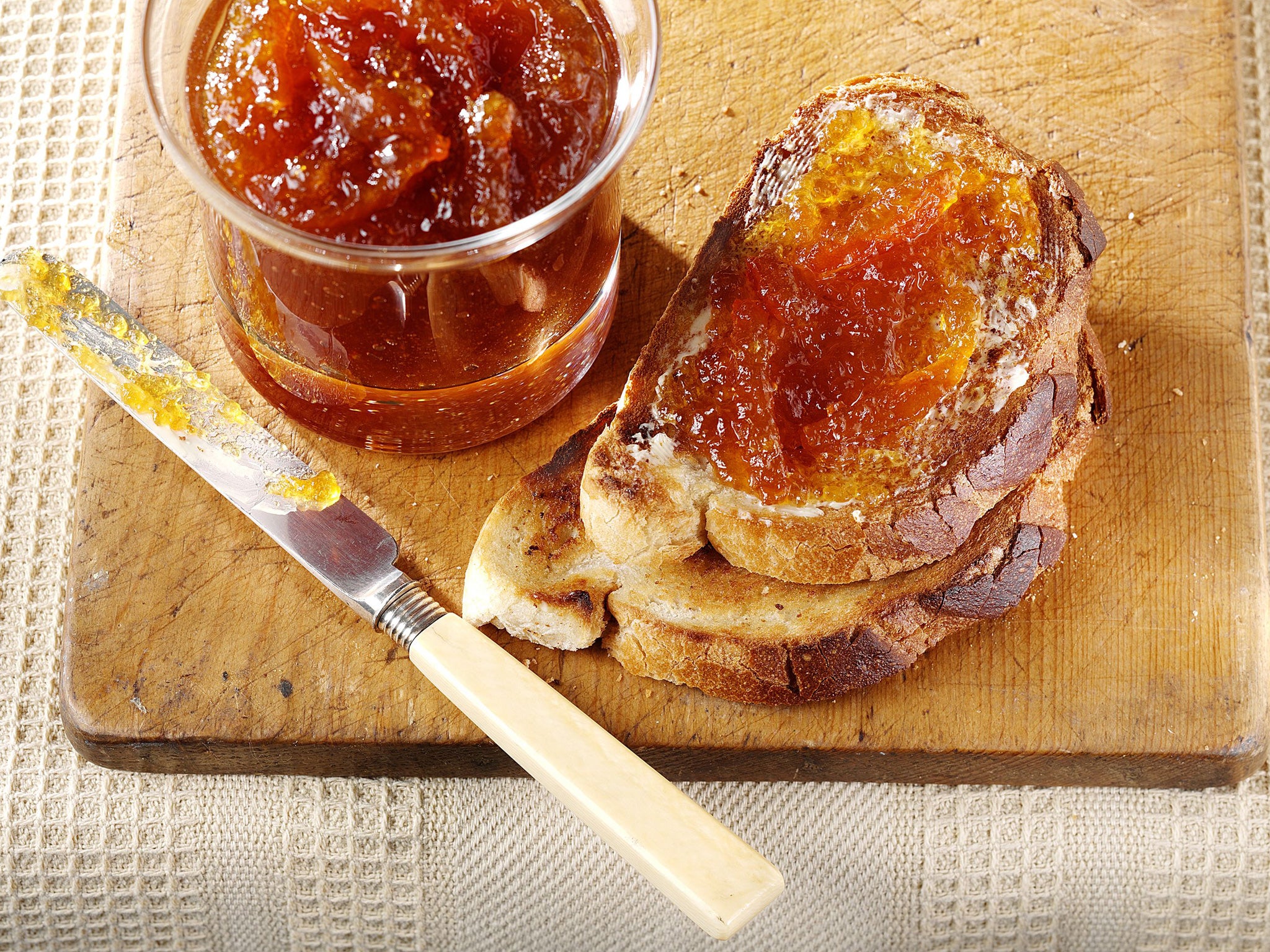End of the Great British Breakfast as we know it? New sugar rules mean marmalade 'would be gloopy sludge'

Plans to change the rules governing jam and marmalade production in England could lead to "the end of the British breakfast as we know it" and leave consumers eating French-style spreads which "taste like mud," an MP has warned.
Ministers intend to relax regulations governing the minimum level of sugar which a product calling itself jam or marmalade can contain. The government says the change will help British farmers market their products abroad.
But Tessa Munt, a Liberal Democrat, criticised the regulations from Brussels, which means manufacturers will be able to call their fruit spreads jam even if they are only 50 per cent sugar.
Ms Munt, who is parliamentary private secretary to Business Secretary Vince Cable, said this will mean they will be able to sell a "gloopy sludge" that resembles nothing like the traditional British staple.
She told MPs in a Westminster Hall debate that rules dating back to research in the 1920s meant that jam had to be at least 60 per cent sugar to retain its gel-like quality.
Consumers would be left confused if producers were able to sell products labelled as jam when they were only 50 per cent sugar as their consistency would be similar to inferior European fruit spreads that often "tasted like mud", MPs heard.
Ms Munt said: "I am concerned that this debate will herald what will turn out to be the end of the traditional British breakfast as we know it.
"We all know what we expect when we go to the supermarket - something that is of beautiful quality, beautiful colour and it has a shelf life of about a year.
"By reducing the percentage of total sugar, the characteristic gel-like consistency of jams and marmalade will be lost. The result will be an homogenised spreadable sludge that does not bear any resemblance to what we know in England and what we enjoy as British jam.
"With a 60 per cent sugar content, the colours of sweet preserves are bright and characteristic of the fruit used to make the product. The fruit is fantastic.
"A lower percentage produces products with darker, muddier colours which may affect consumer confidence in the British product.
"In addition, if the consistency lacks the characteristic gel and is instead more like a fruit spread or a fruit butter, consumer confidence in the properties of jam and similar products may be lost."
The regulations have been approved by the EU and are now making their way through a series of committees. George Eustice, the Environment minister, said the Government intended to support the proposal because manufacturers would still be able to make jam with 60 per cent sugar.
Mr Eustice said: "The reduction in the minimum sugar levels to 50 per cent delivers the greatest flexibility to the industry as a whole in a way that I do not think will be detrimental to those who are in compliance with the regulations."
Defra, the government department responsible for food regulations in England, held a consultation earlier this year.
A number of manufacturers said they would be in favour of lowering the minimum sugar requirement, officials reported.
A Defra spokesman said: "Reducing the minimum sugar content in jam from 60 per cent to 50 per cent will help British producers - large and small - to trade more easily across the world, boosting our economy and allowing jam-lovers everywhere to enjoy delicious British jam."
Laura Mason, a British food historian, said that spreads with lower sugar content tend to have less of a gel texture than the jams traditionally favoured by British palates. But she said that Munt was "overdoing it" since low-sugar fruit spreads have been available on British supermarket shelves for years.
Ms Mason, who makes her own jams out of strawberry, raspberry, and blackcurrant, added that France's answer to English jams - confiture - is "very nice."
The new regulations will apply to England only but Scotland, Wales and Northern Ireland are likely to follow suit.
Tobias Ellwood, a Conservative MP, said the Government should consider introducing a kite mark for all jams with 60 per cent sugar content. Another Conservative, Priti Patel, said the Government should be helping British producers to export their jam around the world.
Asked whether the Prime Minister backed the jam changes, a Downing Street spokesman said: “This is the preserve of Defra”.
Join our commenting forum
Join thought-provoking conversations, follow other Independent readers and see their replies
Comments
Bookmark popover
Removed from bookmarks